Five years ago, during the 25th anniversary of The Trade, LAKI spoke with former LA Kings General Manager Bruce McNall and Krushelnyski to learn more about their immediate reactions and how the sports and hockey culture in Los Angeles immediately changed. Both men were fascinating interviews and eagerly shared their recollections of early August 1988, with McNall revealing how one particular load-bearing piece of the trade in Carson was eventually worked in.
“They were asking for Luc, and I absolutely did not [want to trade] Luc, and I would not do Luc. Part of that was seeing whether or not if I held on like that, whether they would in fact cave,” McNall told LA Kings Insider in 2013. “Jimmy Carson – I also didn’t want to give up Jimmy as well. He was a big part of our young…team. He’s a center. He’s a first line center, and so he would be behind Gretzky [and Bernie Nicholls], so it probably makes more sense. So, finally, after a lot of negotiations, I ended up [including] Jimmy as well.”
Robitaille was in Montreal at the time of the trade and had heard, like many closely connected to the sport, that there was definitely substance behind the smoke. He recalled hearing “some rumblings” in advance of the trade before McNall called him two or three days prior to August 9 to express confidence that it would ultimately happen.
“I think down deep, I still didn’t believe it,” Robitaille said. “I didn’t believe that the best player in the world, at his peak, would be traded. Later, he did tell me – I don’t know if it’s true – but they had asked for me, and [Bruce] had told me he would never trade me. That’s the reason it took a few more days.”
At the time, Robitaille hadn’t heard his own name in connection to the trade, and given that Carson would’ve been bumped down the center depth chart, his inclusion made the most sense. It’s silly to think of a transaction that separated Robitaille and Carson as “bittersweet” – Wayne Gretzky was coming to Los Angeles, hello! – but given the team’s direction and the young studs it had in Robitaille, Carson and Steve Duchesne, amidst a more experienced young core that included Jim Fox and Nicholls, it did serve as a massive, franchise and sport-redefining jolt that did affect two players who were very close at the time, which made returns to The Forum as a visitor an “odd feeling” for Carson.
“I think that’s when the trade was able to happen, because they wanted one of the young guys. That’s what I recall. So, it wasn’t [bittersweet],” Robitaille said. “You kind of know to make that type of trade you’re going to have to give up some player. But we were getting Mike Krushelnyski and Marty, so we were getting some good players, too.”
“At the time, I thought we added a lot of players to be a better team. We kind of knew we had a chance to compete for it. It was John Tonelli, (one year later) Larry [Robinson], Krushelnyski, Marty. It just felt right away that we were a better team, you know? I didn’t really understand then what it took to really win the Cup, but I certainly knew we had a better team.”
Happily my boss was on vacation and one of my sources had actually cut the check to Pocklington so we went with the scoop on KTLA ;-)
Still lost the 1988 Emmy for best sports reporting to KNBC. For a feature on Morganna The Kissing Bandit. Seriously. https://t.co/G5u1cniR5z
— Keith Olbermann (@KeithOlbermann) August 8, 2018
On Wednesday, LA Kings President Luc Robitaille sat down with LAKI to discuss The Trade, nuances of Wayne Gretzky’s shot off the rush and his relationship with the greatest hockey player of all time, who had happened to purchase Robitaille’s junior club, the Hull Olympiques, three years and two days before he joined the Kings. | RELATED READING: Remembering The Trade: Bruce McNall / Mike Krushelnyski
LA Kings Insider: When you all convened in Victoria for training camp, whether it was there or at the press conference, did Wayne ever address the players on or off the ice? Did he ever say, ‘expect this,’ or speak formally to the group?
Luc Robitaille: No, Wayne was not that kind of guy. Like, I was still in Montreal when they had the press conference, because it happened within a few hours. I think whomever was in town – I don’t think there were a lot of players. And then we didn’t see him. At camp, he was there, but Wayne just liked to be a player, just like everybody else. He thought of himself as just a hockey player, so there wasn’t any big rah-rah speech and so forth. But, he was really busy. There was always something. There was always an event. Bruce McNall kept him really busy, especially at night or after practice, and the demand with the press was incredible. We had never seen anything like it. I mean, this was my fourth or fifth camp there in Victoria. There were never any reporters. The next thing you know, the arena was packed, there were people everywhere. So, from that standpoint, that was pretty amazing to see. But I think Wayne was more studying what our organization stood for, and he had a mandate. He knew how to win the Stanley Cup. He’s coming in, and I think he was more looking at everything. You’ve got to remember, if I recall, we got Larry Robinson [in 1989], also. We had John Tonelli. We had some guys that had won Cups. So, these guys were more listening to them and hearing what needed to be done for our organization to be better.
LAKI: As far as what you had seen from him on ice, you had played against him as a divisional rival for two years. Whether it was at the first practice, or at training camp or early in the season, what did you pick up from Wayne that maybe you hadn’t known before when he was an opponent?
LR: Well, he was my idol, so I always studied him at all times. The first thing that I picked up that I had never seen – you always wonder why someone’s so much better. They have vision. There are things you can’t teach. But Wayne did everything against the grain. If everybody comes up down the wing – I mean, I’m getting technical here – but if everybody comes up down the wing, on the wall and stops up and looks to pass the puck, Wayne would do it, but when he stops up, he would step three feet towards the blue line. Whenever he stopped, he moved right away. I had never seen anybody do it, and I have never seen anybody do it since. When he would stop up, he would right away step in [the other direction]. So, if you’re the defenseman and you’re back and you know when Gretzky’s going to stop but you don’t know when, he knows in his mind that he’s stopping and he’s going right away the other way. So, the defenseman, by the time he stops, Wayne would gain a foot or two feet. That would give him so much more room to catch Paul Coffey or whomever.I was blown away by how much room he created for himself. He always went against the grain. No player seems to do that. Even today, funny enough, no players really do that. It’s really interesting. And then he did one more thing that I picked up that I tried to practice but I struggled to do. If you go back and look at all his highlights, big games against Calgary, and you wonder, ‘how the heck did he always score high-glove coming down the wing?’ He did one thing, when he would come down the left side, he would step a foot towards the wall, and then when he stepped this way towards the wall to the left, he shot back and he picked the corner most of the time. But what that would do – don’t ask me why, but it’s a human instinct – automatically, the goalie has to go like this (drops hand). So, [the goalie] always dropped his glove, and he would just shoot it by. It wasn’t a hard shot, but it’s amazing. I don’t think he did it because he knew what he was doing, I think it was a natural instinct that he developed over the years, and I don’t know how, but he’s still the only player still to this day to do that. People wonder, like, you get to 900 goals and it wasn’t the hardest shot, but he did all these things against the grain. Most guys that are coming down the wing on the left side, they’re turning towards the goalie and they shoot. He would start turning towards the goalie, and at the last second, he’d do this, and then shoot. The goalie always drops his glove. Pretty amazing. I picked that up. I tried it every practice. In every practice, I’d score, but in the game, it’s hard. I remember, Kelly would go, ‘Like, why’s he always beating me there?’ I’m like, ‘I’m doing what Wayne’s doing!’
LAKI: What was your relationship like in Wayne’s early years with the organization? Did you regularly chat with him, one-on-one?
LR: Not the first couple years. My first couple years, I was really nervous. They say it’s hard to meet your idol. I lived with my idol every day. It was really hard. They put me on his line. It was hard. … It was to a point where I think the first four or five, six games I played with Wayne and Dave Taylor, and I was nervous because I didn’t want to disappoint him. That was really what it was. I remember one game, maybe game three, it was a two-on-one, and because I idolized Gretzky – especially in junior, I had 130 assists and wasn’t known as a goal scorer – I tried to pass it to Wayne, and I missed the pass. So, he came back to the bench, he goes, ‘hey, Lucky, if we have a 2-on-1, just give it to me.’ He goes, ‘don’t worry, I’ll give it back to you.’ I knew what he meant. Then, for like the next five games, every single time I touched the puck, I just fired it to him. Like, I was so nervous. I just wanted to make everything right. I remember Robbie Ftorek after a while, he says, ‘I’m going to take you off the line, this is ridiculous.’ So then I felt really bad. But then I got back and got to play more with him on the power play over the years.
(Robitaille finished with 46 goals and 98 points that season.)
LAKI: When you were with the Olympiques and Gretzky owned the team, how often did you get to meet with him?
LR: Twice. He never [regularly talked to us], but my last year of junior, he bought the team, so we were ecstatic. Because our camp was earlier than their camp, he came to meet the team and we met him, and we were enamored. We got to meet Wayne Gretzky, and when we started the season, we happened to have a game in Montreal, and [the Oilers] were playing apreseason game in Montreal. I think we met him after the game again, and that was it. He wasn’t able to see us. But his good friend Charlie Henry who was good friends with his dad, manged the team. He ended up being one of the greatest major junior hockey managers.
MORE TO COME ON THURSDAY
-Lead photo via Andrew D. Bernstein/Getty Images

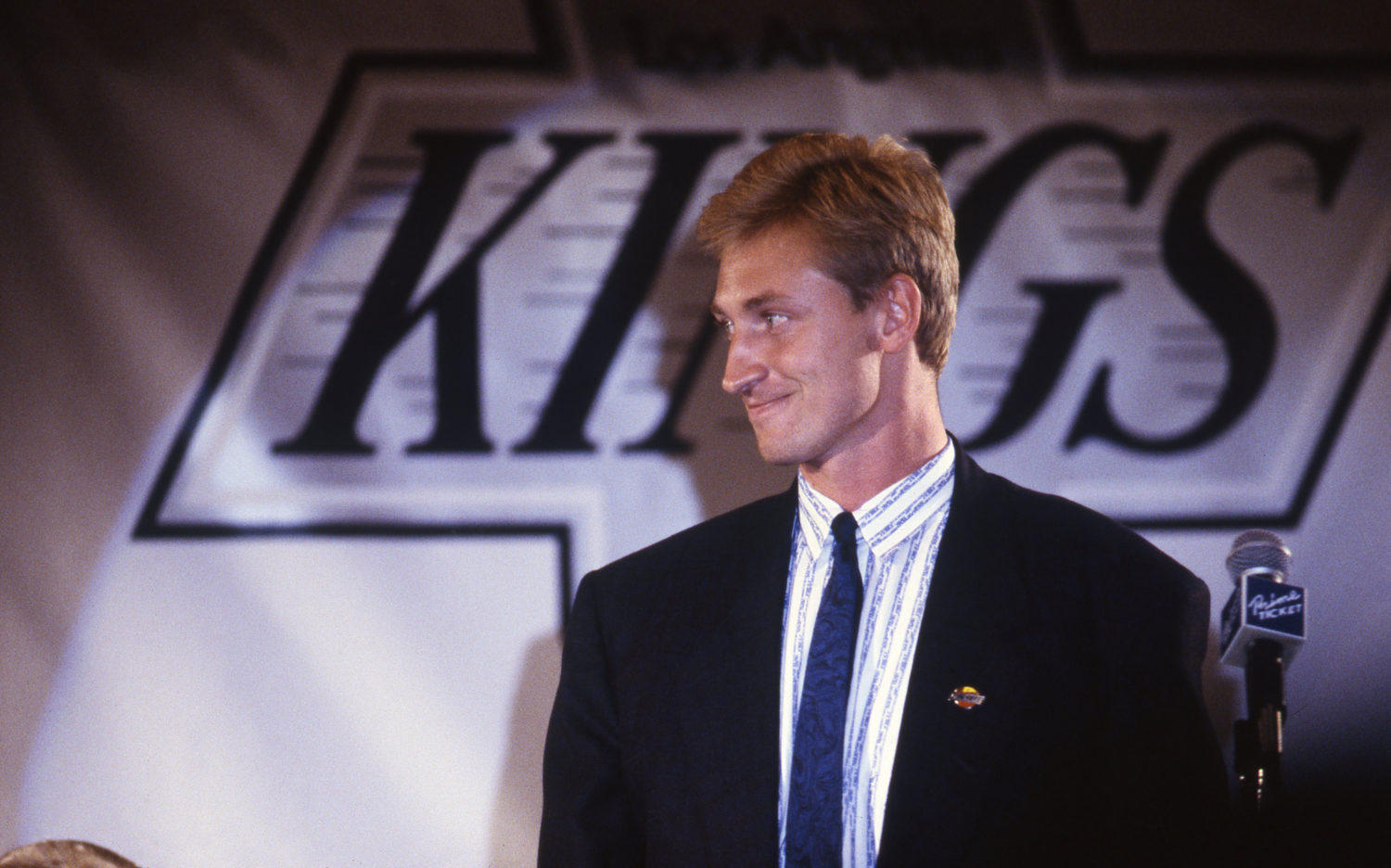
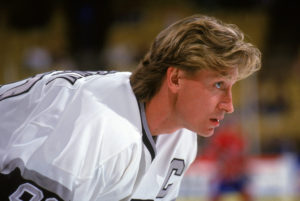
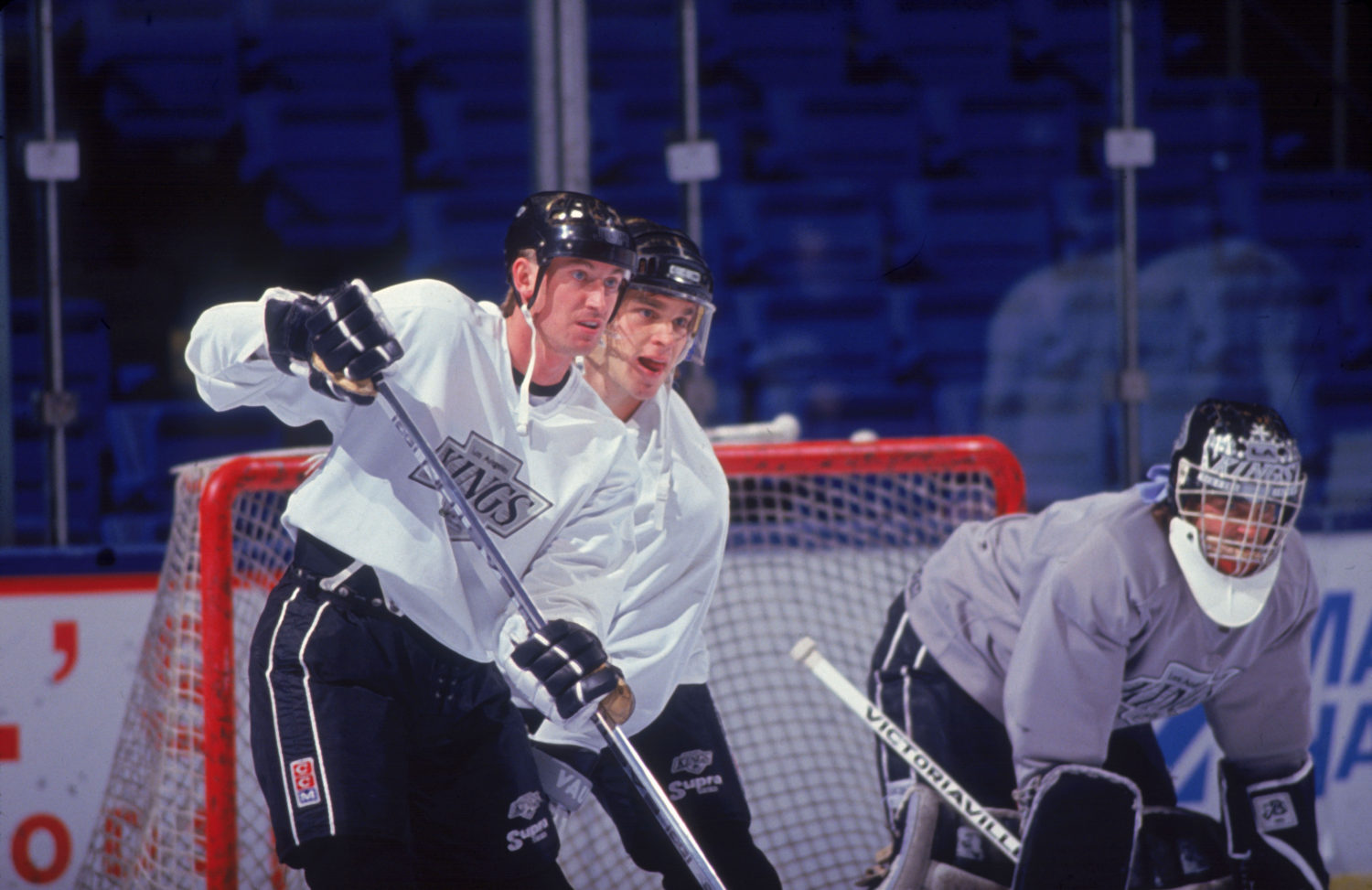
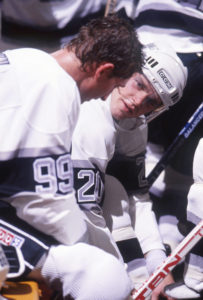
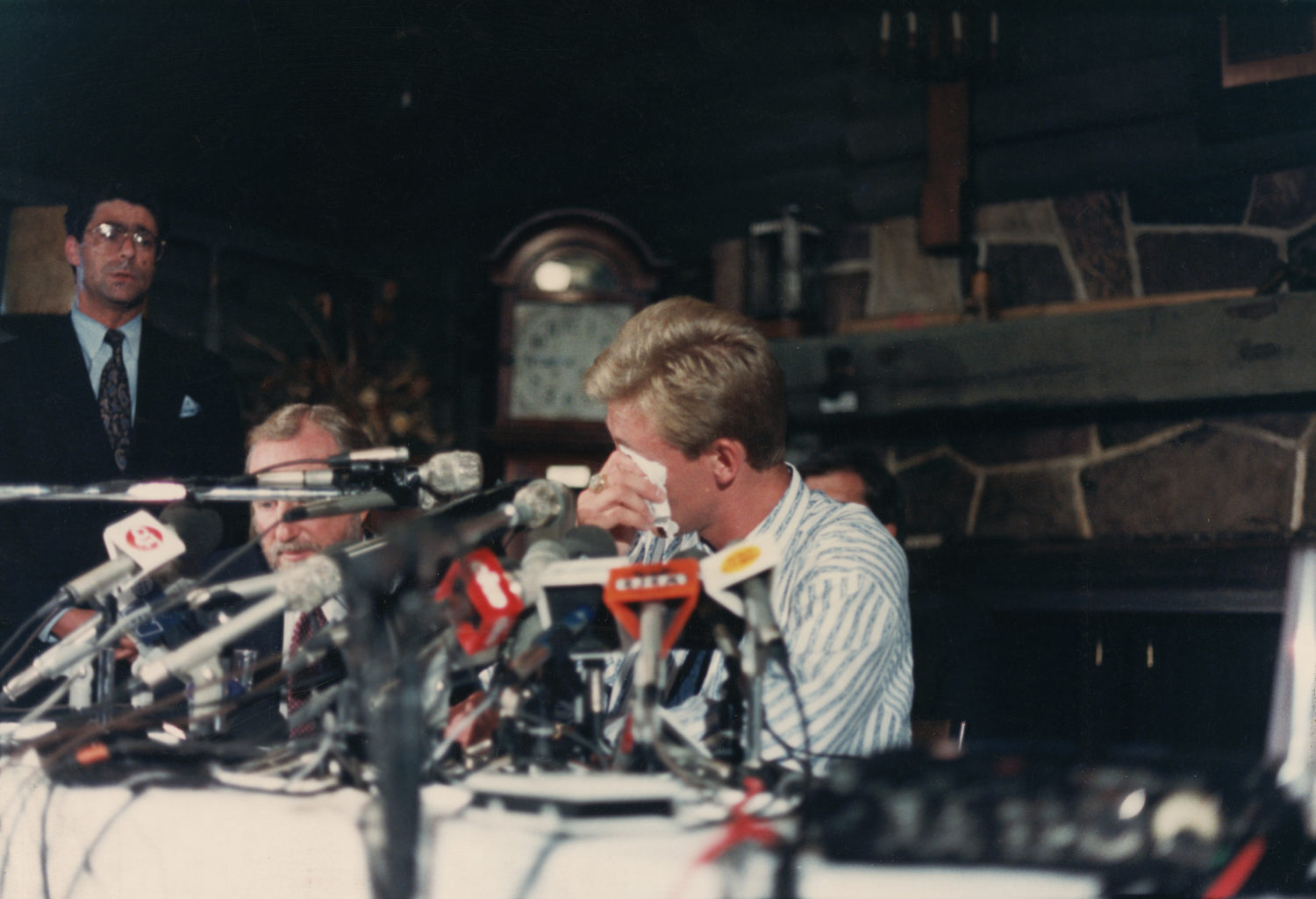
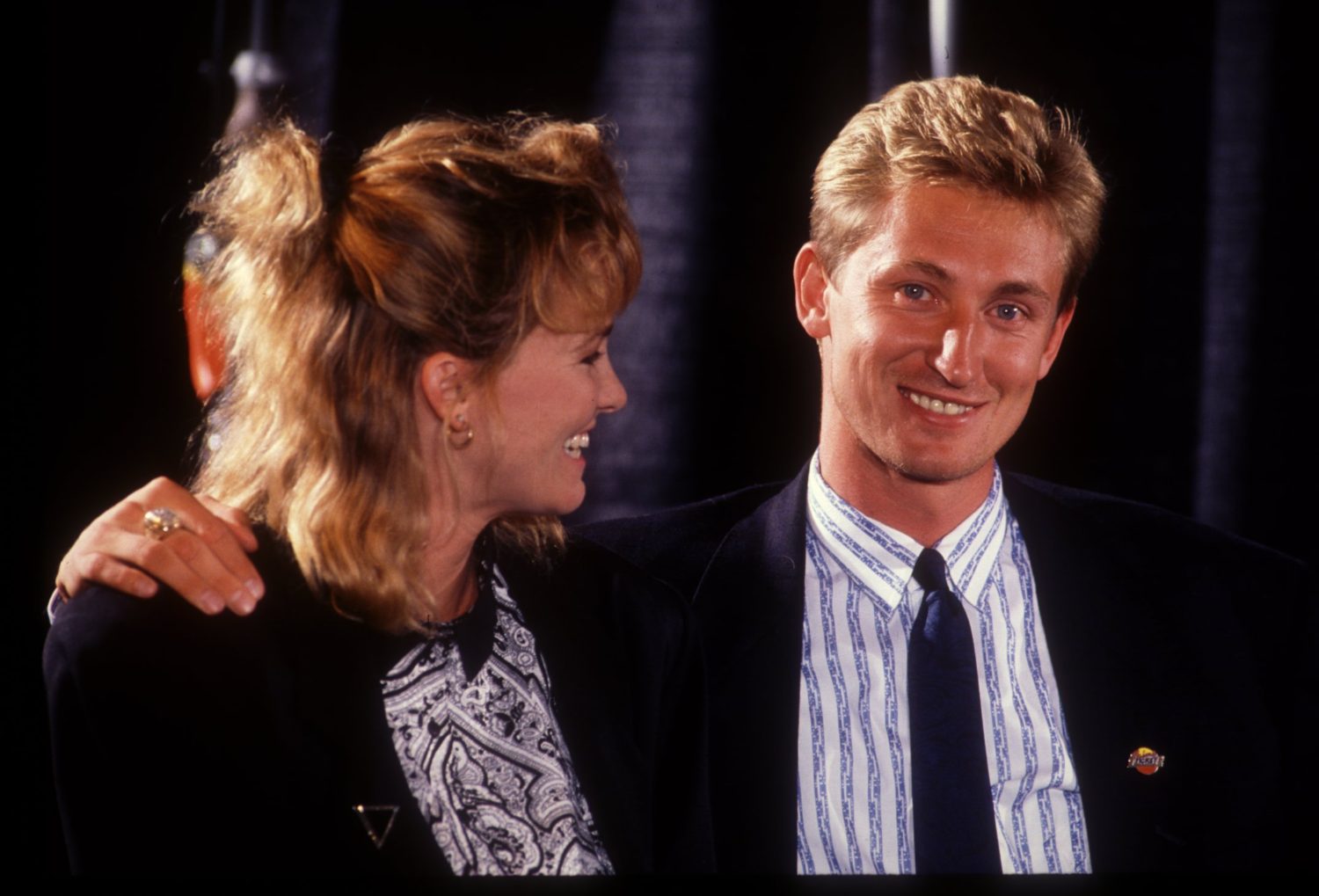

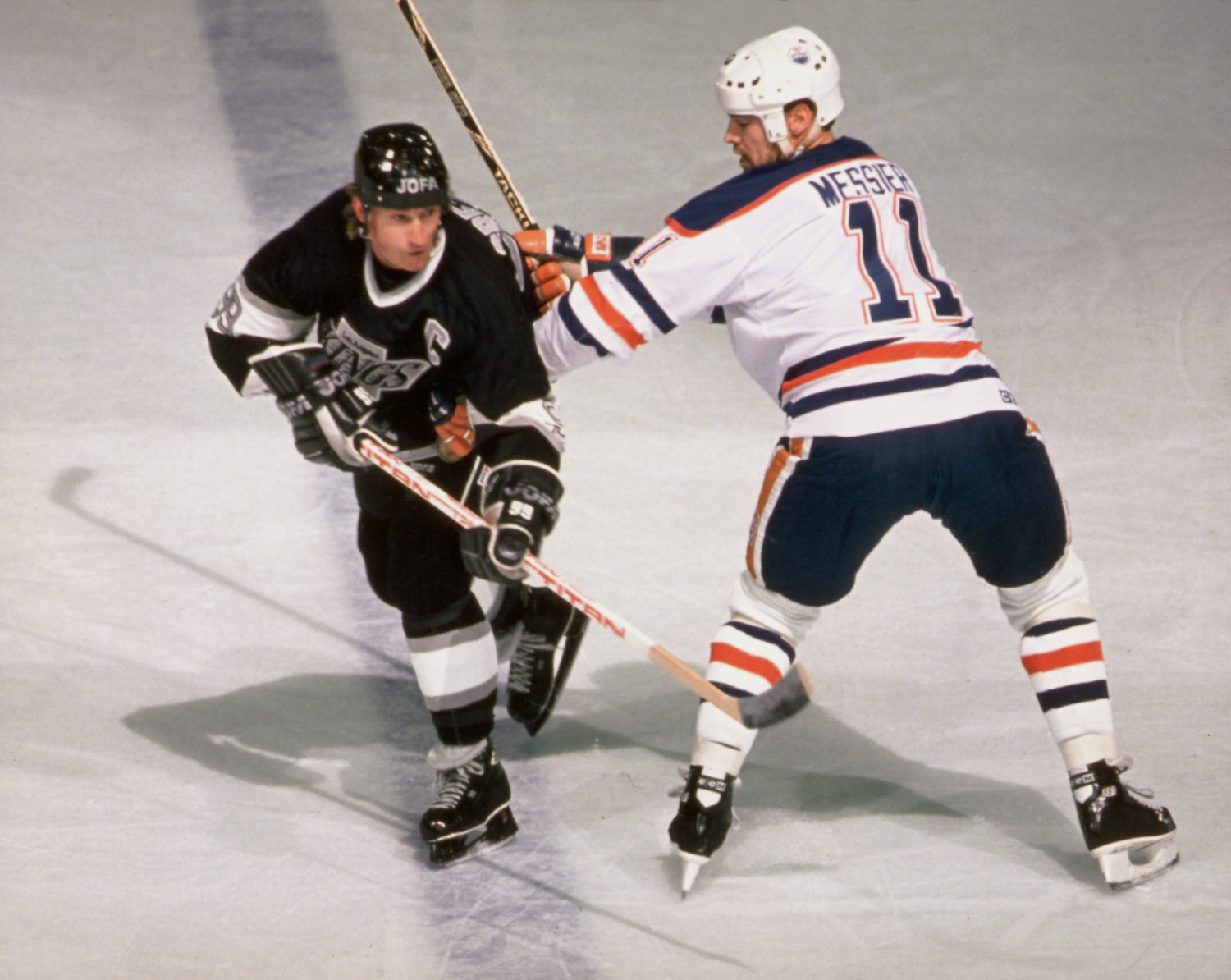
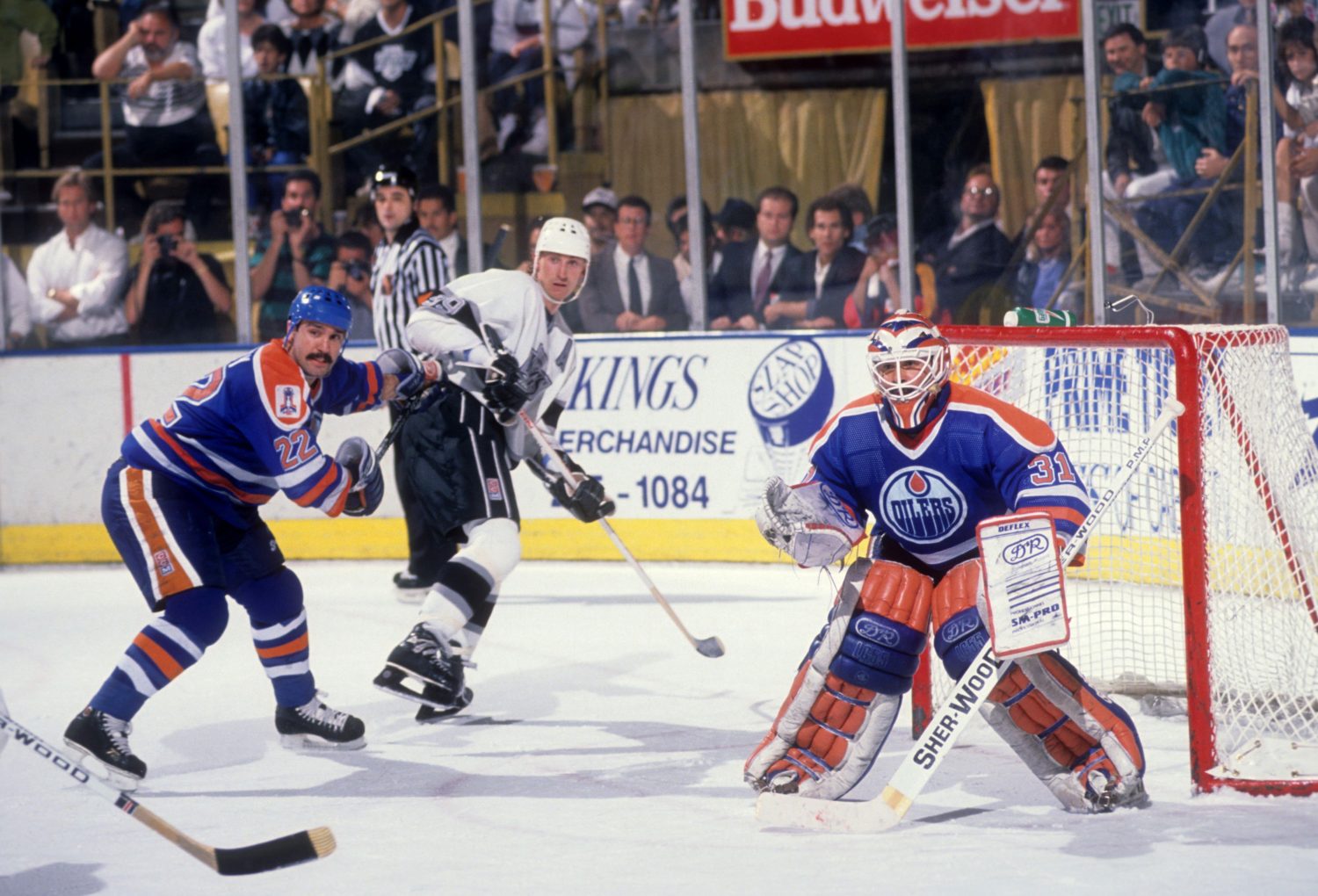
Rules for Blog Commenting
Repeated violations of the blog rules will result in site bans, commensurate with the nature and number of offenses.
Please flag any comments that violate the site rules for moderation. For immediate problems regarding problematic posts, please email zdooley@lakings.com.